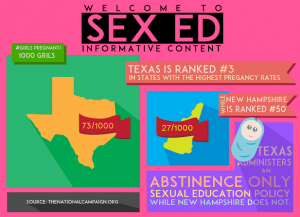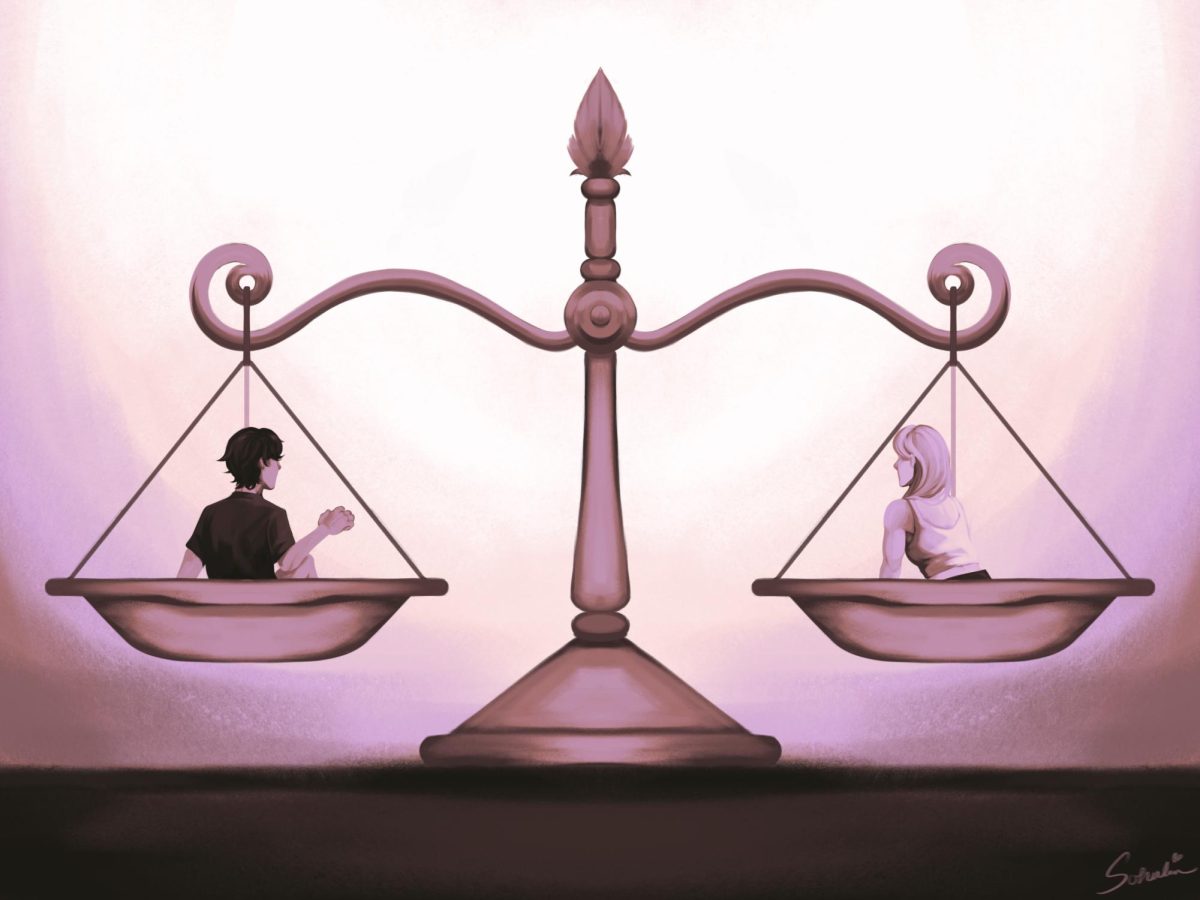Sakshi Venkatraman
Staff Writer
@oompapa1
No matter what your classes or electives, high school is a balancing act.
A combination of schoolwork, extracurriculars, sports, relationships, jobs, social lives and family is enough to keep anyone on their toes for a good four years. The fact is plain and simple, though, as teens, we are horrible with balance.

Learning how to take care of ourselves is hard enough and the looming notion that in a few years we will have to cook our own food, wash our own clothes and clean our own place is, on its own, quite daunting.
Every year in the United States, 57 out of 1,000 teenage girls become committed to another “activity” that tips their scale of balance even more than ever before. It is called, motherhood, and it can alter a life like a strike of lightning.
Teen pregnancies have been a notable problem in a America since the 1950s and 60s, and in the last few years, the overall rate has fluctuated quite a bit. Despite the variances in the statistics, there is a theme that has remained consistent since teen pregnancy data was first collected in the 1940s; the correlation it has with education.
According to Advocates for Youth, pregnancies that occur in girls between the ages of 13 and 17 are much more frequent in conservative states with little to no sexual education programs being implemented. According to The National Campaign (to Prevent Unplanned Pregnancies), right now, Texas has the third highest rate of teen pregnancies, with 73 of every 1,000 teenage girls getting pregnant. Nationally speaking, it also has one of the worst sex-ed programs in the country: the abstinence only policy.
In many southern, Christian majority states, schools implement what is known as the “abstinence only policy”, which is essentially when schools address every sexual question or subject with: wait until you are married.
Growing up with these policies even at the middle school level, I remember being taught by various speakers and organizations the benefits of being celibate, and why I should wait until I get out of college and have stable a job before even touching a member of the opposite sex.
I also remember my peers laughing and paying less than no attention during every one of these presentations.
Researchers at the University of Washington in Seattle discovered that adolescents who have been given some form of comprehensive sex education are 60 percent less likely to get pregnant or get someone else pregnant. Also, the last federal study revealed that abstinence-only programs had “no impacts on the rate of sexual abstinence”.
According to the Center for Disease Control, 52 percent of Texas high school students have had sexual intercourse before and out of those, 46 percent did not use a condom the last time. Additionally, 19 percent were never educated about AIDs or HIV.
This is not to say that abstinence is, in any way, a joke. If a person’s beliefs and morals are strong enough to keep their self control solid until the day they get married, then more power to them. It is a great philosophy and a practice that has many perks, including the fact that pregnancy is not a source of worry.
The problem is, it is completely unrealistic to preach it to teenagers and expect them to listen. There are always going to be at least a few students making the decision to have sex and they need to be educated so they can effectively protect themselves.
If putting a condom on a banana is what it takes, then that is what we need.
Another thing to keep in mind is the incredible power of the Internet. As a teenager, if there is something I do not know about or have not been educated about, I take to the Internet to find my answers.
This can lead to a lot of misinformation and misconceptions that could influence the thought process and demeanor of a young person.
The question society as a whole has to stop and ask themselves is: should we send kids into the world without education and expect them to “do the right thing”?
From my perspective, I think the answer to that is no. It is the equivalent of sending a man into the snow without teaching him to light a fire.
Analyzation of the statistics proves that establishing sex-ed programs in Texas could decrease the rate of teen pregnancies.
New Hampshire is the state with the lowest rate of teen pregnancy, with 28 out of 1,000 teen girls getting pregnant every year. Uncoincidentally, New Hampshire law requires there be comprehensive sex education in schools.
Looking at the facts, simple programs that teach about protection and contraception can ultimately bring the rate of teen pregnancy way down, and I believe that that is worth stepping out of a comfort zone for.
This issue is not entirely the fault of the school district, for we cannot just conjure up a sexual education program without decent support. Honestly, when I picture the effects of Coppell implementing sex-ed, I picture many angry parents who believe abstinence is the only way.
Ultimately, a child should not become a parent because a parent fails to do their job. Teaching the birds and the bees is part of the syllabus of parenthood and if the adults expect high schools to censor this material, it is their job to teach it to their child.
I am not accusing people of bad parenting, but there is a gap somewhere and it is causing Texas to have the third highest rate of teen pregnancy in the nation. Someone needs to claim responsibility and be held accountable and, frankly, the schools cannot be blamed for everything that is wrong with the youth.
We are doing our children a disservice if we do not prepare them. For some, “the talk” is seen as risque and uncomfortable, but it needs to be discussed somewhere, preferably with an educated adult that has gone through it. We need to stop being afraid of human anatomy and take the necessary steps to protect our children from the burdens of unplanned parenthood.
Personally, I have never given birth to a child, but I imagine that it is much more painful than sitting through a year or two of sex ed. Parents, students and the educational body need to make the distinction and decide which is the lesser of the two evils.














